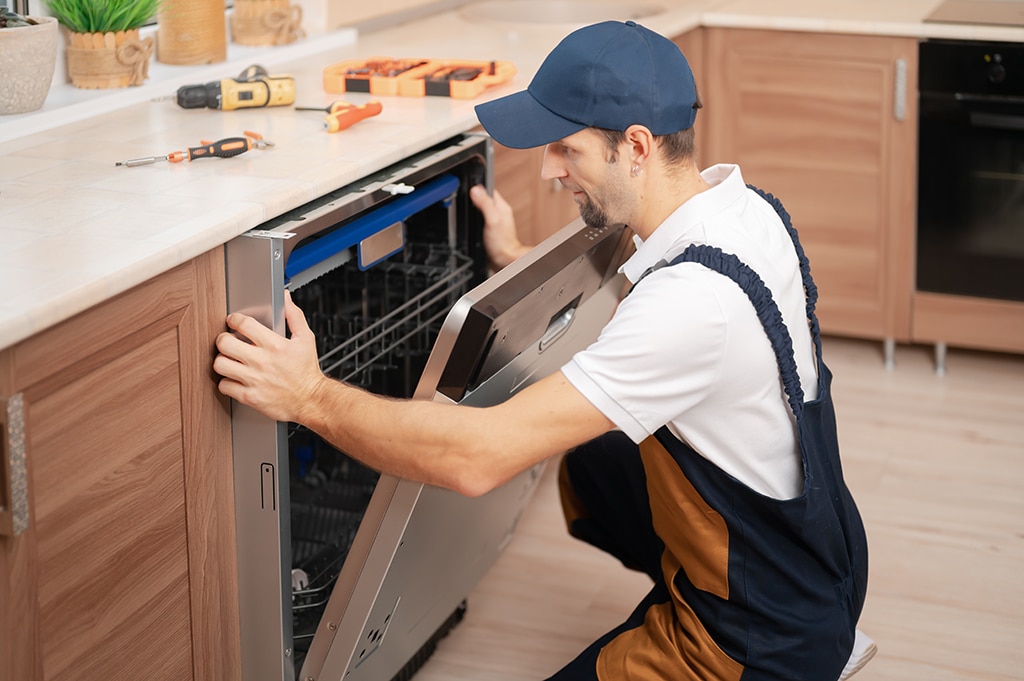
When installing home kitchen appliances, you should always pay special attention to their safety hazards. To avoid these hazards, it is important to check for any electrical cords or cables tangled or damaged and to clean the ovens and other kitchen appliances regularly. GFCI outlets and non-slip flooring should also be considered.
Electrical Safety in the Kitchen
One of the most important rooms in the home is the kitchen. It is where we cook and eat, and it is also where we waste food. That’s why it’s important to have a kitchen electrical safety system in place.
Kitchens are naturally damp, so there is a greater chance for water and electricity to mix. This can lead to a serious accident. The best way to ensure you are safe is to use the right appliances correctly.
One of the most obvious safety measures is to plug your appliances Rockville, MD, into a socket. Make sure that it’s out of reach of children, and avoid overloading it. However, there are other precautions you should take.
Another good safety measure is to check the voltage of your circuits. A proper residual current device (RCD) will help prevent electrical shock.
Non-Slip Flooring
Having non-slip flooring installed in your kitchen is a great way to make your home safer for you and your family. A slip on the floor is one of the main reasons for accidents and injuries in the home. It is also one of the major safety hazards for children.
Slip-resistant flooring is available in many different materials and styles. The type you choose will depend on your specific needs. For example, you might prefer an engineered hardwood or cork floor in your kitchen. Alternatively, you could opt for vinyl.
Slip-resistant tiles, which are often made of rubber, are another option. However, these can be difficult to clean. To prevent this, you should invest in a good rubber cleaner. Also, ensure that the hired contractor adheres to maintenance and replacement guidelines.
GFCI Outlets
GFCI outlets are a great way to protect your home and family from electrical shock. They have built-in sensors that monitor the inflow and outflow of electricity and will trip the circuit if there is an imbalance in the current.
GFCI devices are especially important in places where there is high-powered equipment. These devices are also useful in wet locations, such as kitchens and bathrooms. The NEC, or National Electrical Code, requires GFCI outlets in these areas.
GFCI outlets can be installed in your home if it has an unfinished basement or a bathroom with a sink. Most states require GFCI outlets in wet areas. Before GFCI outlets were installed, hundreds of Americans died each year from electrocution. This is a major concern for children, as they are more prone to accidents.
Running Electrical Cords Under Rugs and Furniture
If you plan to install home kitchen appliances, it’s best to avoid running electrical cords under rugs and furniture. This is not only dangerous, but it can also cause serious problems.
One of the major causes of electrical fires is damage to power cables. Damaged, frayed, or exposed cords can send heat to combustible surfaces. Therefore, they should be regularly inspected. You should also avoid using extension cords in high-traffic areas.
Using an appliance plugged into an outlet that is not properly grounded can also cause a fire. Another way to avoid these dangers is by unplugging your equipment. It’s also important to check the plugs on your appliances, especially when they’re in storage.
Aside from that, you should also ensure that your appliances are high quality. If they’re made of low-quality materials, they could pose a fire hazard.
Cleaning Ovens Regularly
One of the more common safety hazards associated with home kitchen appliances is cleaning your oven. In addition to the dangers of cooking food, the oven can produce significant heat. It’s important to take measures to prevent accidents, like never leaving the oven on overnight. Also, clean the grease pools off the oven after each use.
If you have an electric stove, you should also have a plug to keep the flames from spreading. Keeping the unit from tipping over is also a good idea, especially if you have kids and pets. The best place to put your oven is on a sturdy stove bracket anchored to the wall. This will also help you prevent a trip to the emergency room.